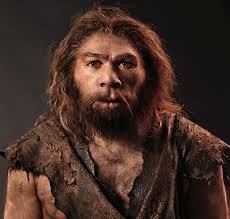Neanderthal
英 [niːˈæn.dəˌtɑːl]
美 [niːˈæn.dɚˌtɑːl]
- adj. 尼安德特人的;穴居人的

中文词源
Neanderthal 尼安德特人的,守旧的
来自Neanderthal,德国峡谷名,来自ne-,新的,词源同new,-ander,人,词源同anthropoid.因于该峡谷发现了已灭绝的原始人化石而得名。
英语词源
- Neanderthal (adj.)
- 1861, in reference to a type of extinct hominid, from German Neanderthal "Neander Valley," name of a gorge near Düsseldorf where humanoid fossils were identified in 1856. The place name is from the Graecized form of Joachim Neumann (literally "new man," Greek *neo-ander), 1650-1680, German pastor, poet and hymn-writer, who made this a favorite spot in the 1670s. Adopting a classical form of one's surname was a common practice among educated Germans in this era. As a noun, by 1915; as a type of a big, brutish, stupid person from 1926.
权威例句
- 1. Neanderthal man was able to kill woolly mammoths and bears.
- 尼安德特人能够捕杀浑身覆毛的猛犸象和熊。
- 2. Let us deal with the question of his notoriously Neanderthal attitude to women.
- 我们现在来说说他臭名昭著的、对女性态度粗鲁的问题。
- 3. In fact, many sympathized with me for having to put up with such a neanderthal of a boss.
- 实际上,很多人同情我不得不忍受这样一个粗鲁的老板。
- 4. The Neanderthal Man is one of our primordial ancestors.
- 的尼安德特人是我们的原始祖先.
- 5. Neanderthal skulls also show evidence of a large hypoglossal canal.
- 尼安得特人头盖骨也证明了存在大量的舌下神经管.
